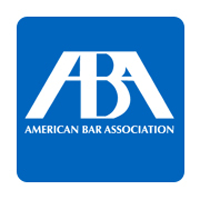ABA urges 11th Circuit to strike down bail schedules as unconstitutional

For the second time this year, the American Bar Association has urged a federal appeals court to strike down a bail schedule that it says unnecessarily jails indigent defendants.
The ABA’s most recent amicus brief (PDF) was filed in Walker v. City of Calhoun, Georgia, in which a group of defendants accused of petty crimes are challenging Calhoun’s bail schedule. Lead plaintiff Maurice Walker, a schizophrenic, was kept in jail for six days on charges of “pedestrian under the influence” because he couldn’t afford $160 in bail, according to the Calhoun Times. The complaint (PDF), filed by Equal Justice Under Law and the Southern Center for Human Rights, says he could have been held as many as 11 days, because court is only in session on Mondays and the Monday after his arrest happened to be Labor Day.
The complaint, filed Sept. 8, 2015, says minor offenders are informed upon their arrest that they can pay and get out immediately. Those who can’t afford their bail are kept in jail for up to a week before their first hearings. Calhoun uses a bail schedule, a list of monetary bail amounts corresponding to offenses, rather than having judges set bail according to the defendant’s dangerousness and other individual factors. There is no release on unsecured bond or own recognizance, the complaint says. This violates the Fourteenth Amendment due process and equal protection rights of defendants like Walker, the complaint says, which forbid jailing people solely because they can’t afford a payment.
A federal judge agreed, certifying a class of indigent plaintiffs and granting a temporary injunction against keeping arrestees in jail solely because they cannot afford bail. The city appealed to the Atlanta-based 11th U.S. Circuit Court of Appeals.
The ABA’s amicus brief, filed to that court, supports affirming the district court’s decision. It says the ABA’s Criminal Justice Standards—which have been cited by multiple appeals courts—are opposed to bail schedules like the one used in Calhoun. Rather, the standards say, judges should use financial bail only when other means of ensuring a defendant’s appearance are not enough.
“Inflexible money-bail systems disrupt the lives of indigent defendants, lead to worse legal outcomes, and pressure defendants to plead guilty,” says the ABA’s brief. “At the same time, inflexible money-bail systems… do not improve appearance rates or public safety, and leave jurisdictions that use such systems bearing the costs of overcrowded jails.”
The brief was signed by outgoing ABA president Paulette Brown, a partner at Locke Lord in Morristown, New Jersey, with of counsel Paul R.Q. Wolfson and John T. Byrnes.
The Walker amicus brief follows another filed by the ABA in April in Rodriguez v. Providence Community Corrections, a case pending in the Cincinnati-based 6th U.S. Circuit Court of Appeals. That case is not about bail, but the use of private probation contractors that jail probationers for inability to pay fines. Like Walker, Rodriguez was filed by Equal Justice Under Law, a nonprofit whose co-founder, Alec Karakatsanis, is a co-chair of the ABA Criminal Justice Section’s Pretrial Justice Committee.
At the ABA Annual Meeting two weeks ago, the organization voted to condemn “user pays” private probation systems via Resolution 111B, sponsored by the Young Lawyers Division.



